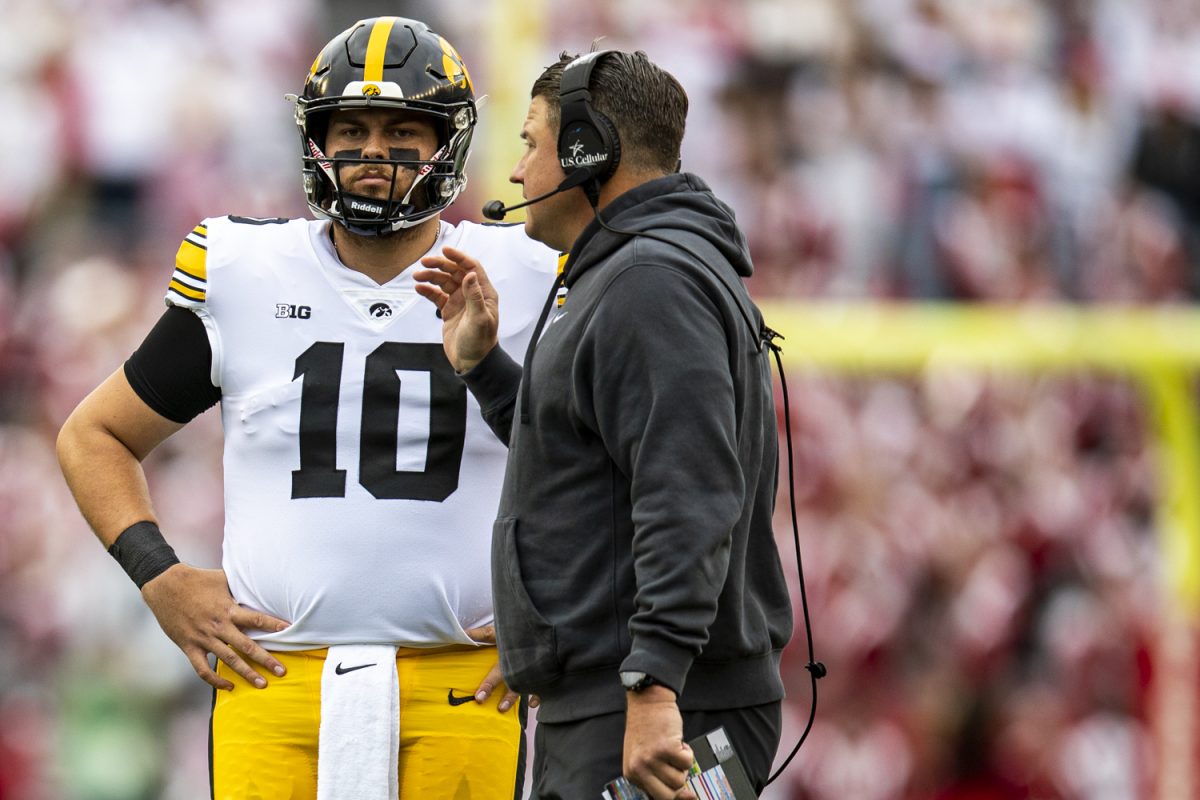Yes
Under head coach Kirk Ferentz, the Iowa football team has been defined by a strong defense, amazing special teams, and a below-average, anemic offense.
Each year, fans and media alike poke fun at Iowa’s inability to put up points, but it begs the question of if Iowa will compete for a national championship with an above-average offense.
It’s certainly not out of the question.
If we take a look back in time, Iowa has had its fair share of success on offense.
In 2002, the Hawkeyes put up 37.2 points per game with Heisman runner-up Brad Banks calling the signals. When paired with fantastic defense and special teams, that unit was nearly unstoppable, going 8-0 in conference play and winning a share of the Big Ten title.
In 2015, Iowa went 12-2 and barely missed out on the College Football Playoff after a 16-13 loss to Michigan State in the Big Ten Championship Game. The Hawkeyes weren’t spectacular on offense but didn’t need to be as they were carried by a stout defense that allowed only 20 points per game.
Any casual college football fan can argue that Iowa has had a championship-caliber defense the last two seasons, and the numbers don’t lie. The Hawkeyes held their opponents under 25 points for a whopping 29 straight games — a streak that lasted for nearly three full seasons.
The bottom line here is that Iowa has proven it can have an offense good enough to sustain long drives and put up points. This season, the Hawkeyes have been decimated by injuries and yet still sit at 6-2 due to their dominant defense.
If Iowa can gain average production from Deacon Hill and the offense the rest of the way, there’s no reason not to believe that it can be a contender for the College Football Playoff.
No
The question of whether Iowa football would contend for a national championship with an improved offense is not contingent just upon the Iowa program itself — it is contingent upon other contenders.
The Hawkeyes sit in the wake of a brutal loss to Minnesota on Oct. 21 that saw the Iowa offense compile all of two yards in the entire second half.
Thus, it is clear no matter how well this offense meshes for the next four games and beyond, it is a limited offense. It can only be so successful with the personnel at hand, execution, and decision-making across the board — whether you think it is a management issue or not.
Even in some of the program’s best seasons in history, the Hawkeyes have come close — but not close enough — to contention for a national championship. It’s not because they haven’t had what it takes but because the teams around them are always much better.
That 2002 team, no matter how great its offense was, had reached its ceiling and could give nothing more upon losing to a USC Trojans team by three whole touchdowns. The result only could have been worse against Ohio State or the loaded Miami powerhouse of that season.
The 2015 team had also reached its peak, losing a toss-up to Michigan State but dropping a 45-16 landslide to the Stanford Cardinal in the Rose Bowl.
The very best this team can do this season can only go so far before running into Big Ten powerhouses and national championship contenders Ohio State and Michigan — teams that are so strong that the Hawkeyes could be perfect against them and still lose, dashing their hopes of championship contention.
Even with an improved offense at its very best, history has shown the Hawkeyes can only produce so much come bowl season.



